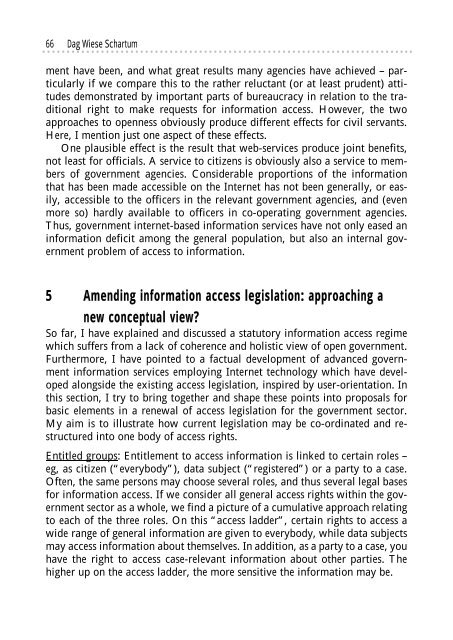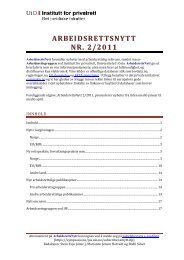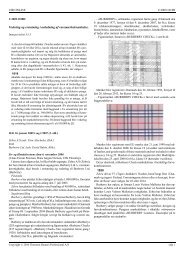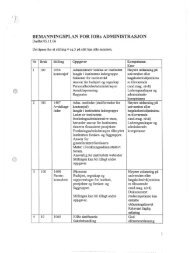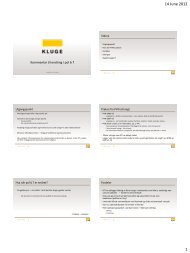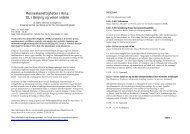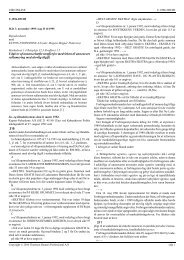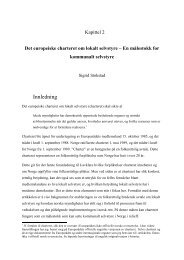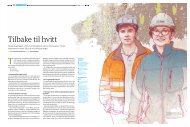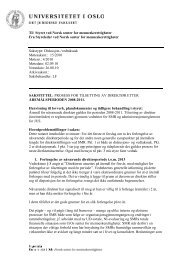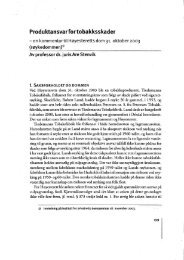Lee A. Bygrave (red.) YULEX 2002 - Universitetet i Oslo
Lee A. Bygrave (red.) YULEX 2002 - Universitetet i Oslo
Lee A. Bygrave (red.) YULEX 2002 - Universitetet i Oslo
You also want an ePaper? Increase the reach of your titles
YUMPU automatically turns print PDFs into web optimized ePapers that Google loves.
............................................................................<br />
66 Dag Wiese Schartum<br />
ment have been, and what great results many agencies have achieved – particularly<br />
if we compare this to the rather reluctant (or at least prudent) attitudes<br />
demonstrated by important parts of bureaucracy in relation to the traditional<br />
right to make requests for information access. However, the two<br />
approaches to openness obviously produce different effects for civil servants.<br />
Here, I mention just one aspect of these effects.<br />
One plausible effect is the result that web-services produce joint benefits,<br />
not least for officials. A service to citizens is obviously also a service to members<br />
of government agencies. Considerable proportions of the information<br />
that has been made accessible on the Internet has not been generally, or easily,<br />
accessible to the officers in the relevant government agencies, and (even<br />
more so) hardly available to officers in co-operating government agencies.<br />
Thus, government internet-based information services have not only eased an<br />
information deficit among the general population, but also an internal government<br />
problem of access to information.<br />
5 Amending information access legislation: approaching a<br />
new conceptual view?<br />
So far, I have explained and discussed a statutory information access regime<br />
which suffers from a lack of coherence and holistic view of open government.<br />
Furthermore, I have pointed to a factual development of advanced government<br />
information services employing Internet technology which have developed<br />
alongside the existing access legislation, inspi<strong>red</strong> by user-orientation. In<br />
this section, I try to bring together and shape these points into proposals for<br />
basic elements in a renewal of access legislation for the government sector.<br />
My aim is to illustrate how current legislation may be co-ordinated and restructu<strong>red</strong><br />
into one body of access rights.<br />
Entitled groups: Entitlement to access information is linked to certain roles –<br />
eg, as citizen (“everybody”), data subject (“registe<strong>red</strong>”) or a party to a case.<br />
Often, the same persons may choose several roles, and thus several legal bases<br />
for information access. If we consider all general access rights within the government<br />
sector as a whole, we find a picture of a cumulative approach relating<br />
to each of the three roles. On this “access ladder”, certain rights to access a<br />
wide range of general information are given to everybody, while data subjects<br />
may access information about themselves. In addition, as a party to a case, you<br />
have the right to access case-relevant information about other parties. The<br />
higher up on the access ladder, the more sensitive the information may be.


